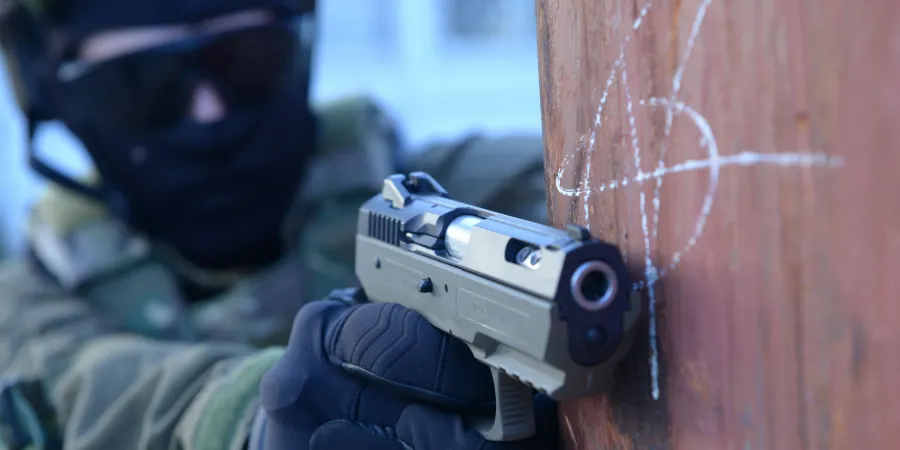IWI to Present Enhanced Ergonomics for its Polymer-Frame JERICHO Family of Pistols at LAAD 2017
Eyal Boguslavsky
| 04/04/2017
Israel Weapon Industries (IWI) – a manufacturer of combat-proven small arms for law enforcement agencies, governments, and armies around the world, presents for the first time at LAAD 2017 show the latest enhancements for the polymer-frame JERICHO pistol family, delivering superior ergonomics.
Modifications include the addition of three backstrap sizes – enabling adjustment according to palm size, the absence of finger grooves – allowing a more comfortable grip, and a rough grip texture – improving the pistol’s grip.
According to Shlomi Sabag, IWI’s CEO, “Following the JERICHO pistol family’s many years of success among police forces, law enforcement agencies, and military entities – in Israel and around the world – we decided to keep the renowned and exceptionally reliable mechanism unchanged, while implementing modifications to the polymer-frame JERICHO pistol in order to achieve outstanding ergonomics. This new generation pistol is specially designed according to the standards and needs of the modern user.”
As the standard pistol of the Israeli Police and police departments around the world – the JERICHO pistol family is available in full-size, medium, and compact models, with either steel or polymer frames, and a slide or frame-mounted safety. Main features include a very reliable mechanism, integral lower Picatinny rail, round chamber indicator, single or traditional double action, and last round catch. Available in three calibers – 9mm, .40 S&W, and .45 ACP – the JERICHO complies with MIL-STD.
"We greatly appreciate the loyalty of JERICHO pistol users over the years, and believe that these new features will encourage new users to enjoy the extensive capabilities of the pistol,” Sabag concluded.
Israel Weapon Industries (IWI) – a manufacturer of combat-proven small arms for law enforcement agencies, governments, and armies around the world, presents for the first time at LAAD 2017 show the latest enhancements for the polymer-frame JERICHO pistol family, delivering superior ergonomics.
Modifications include the addition of three backstrap sizes – enabling adjustment according to palm size, the absence of finger grooves – allowing a more comfortable grip, and a rough grip texture – improving the pistol’s grip.
According to Shlomi Sabag, IWI’s CEO, “Following the JERICHO pistol family’s many years of success among police forces, law enforcement agencies, and military entities – in Israel and around the world – we decided to keep the renowned and exceptionally reliable mechanism unchanged, while implementing modifications to the polymer-frame JERICHO pistol in order to achieve outstanding ergonomics. This new generation pistol is specially designed according to the standards and needs of the modern user.”
As the standard pistol of the Israeli Police and police departments around the world – the JERICHO pistol family is available in full-size, medium, and compact models, with either steel or polymer frames, and a slide or frame-mounted safety. Main features include a very reliable mechanism, integral lower Picatinny rail, round chamber indicator, single or traditional double action, and last round catch. Available in three calibers – 9mm, .40 S&W, and .45 ACP – the JERICHO complies with MIL-STD.
"We greatly appreciate the loyalty of JERICHO pistol users over the years, and believe that these new features will encourage new users to enjoy the extensive capabilities of the pistol,” Sabag concluded.



